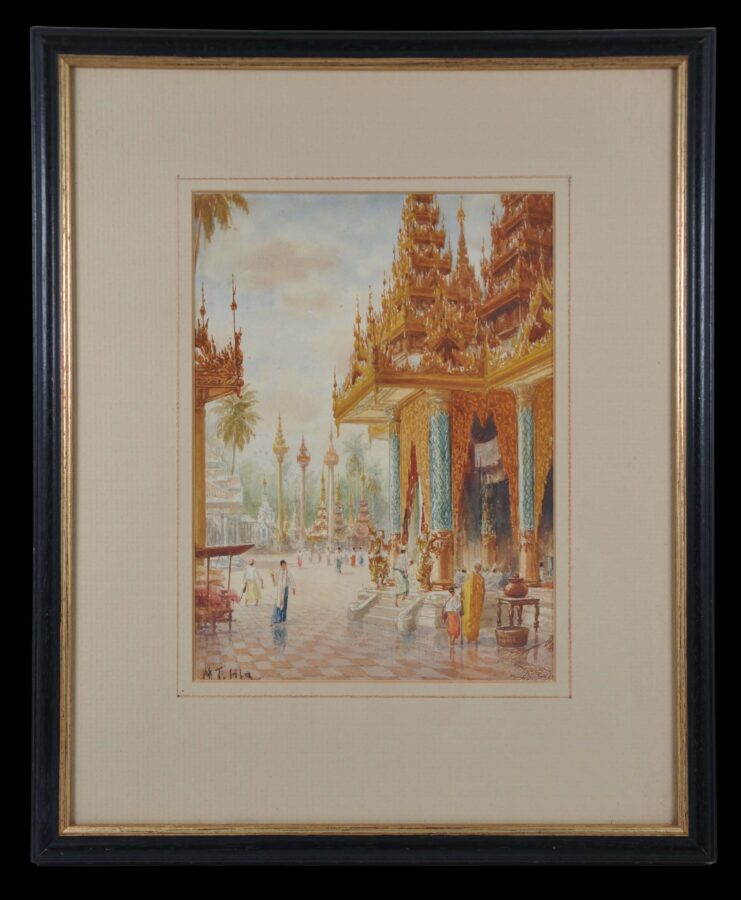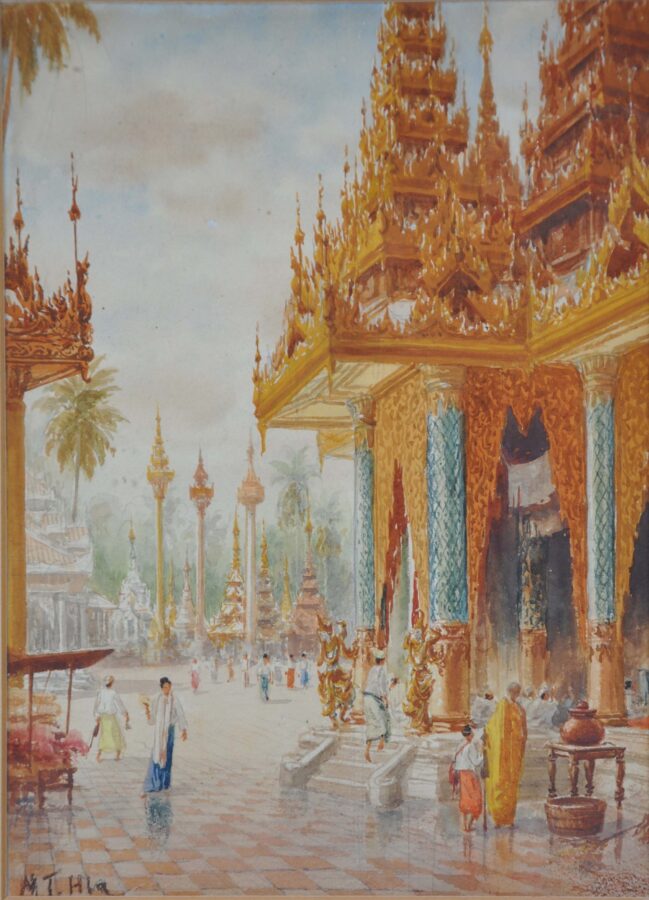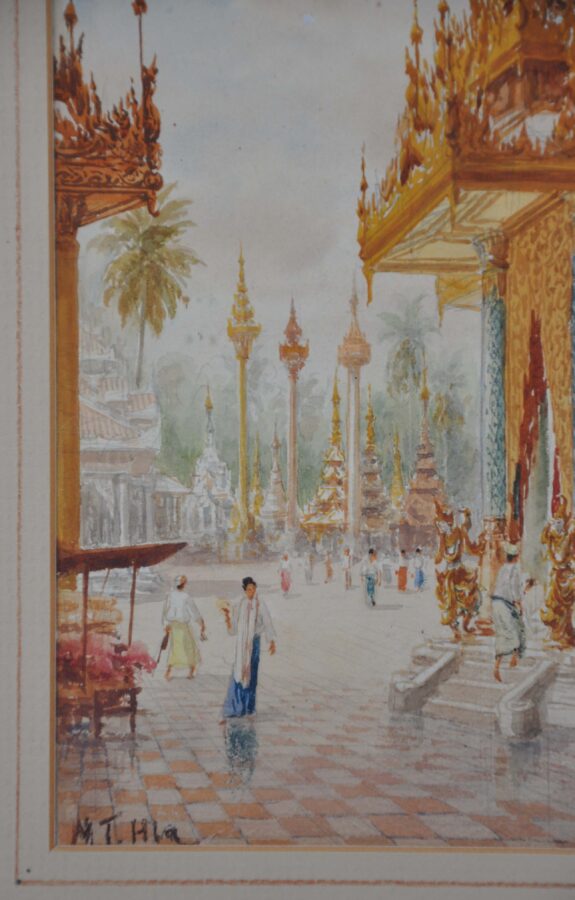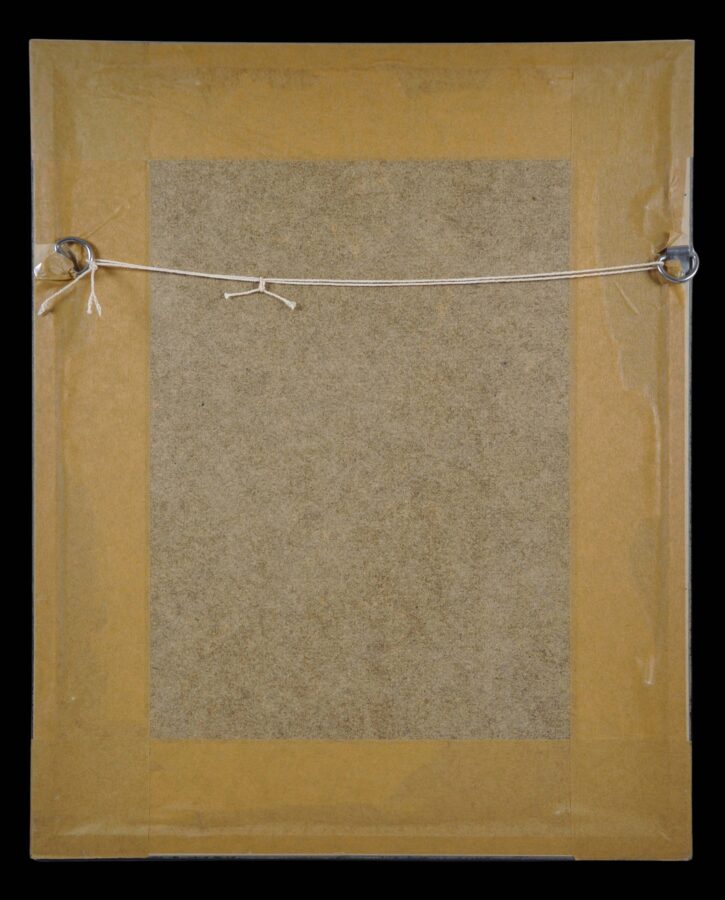Enquiry about object: 9761
Burmese Watercolour by Maung Tun (M.T.) Hla
Burma (Myanmar) Burmese Watercolour by Maung Tun (M.T.) Hla
dimensions of visible painting: 15 and 21cm, dimensions of frame: 28.5 and 35.5cm
Provenance
private collection, UK; UK art market
This finely executed watercolour by the early 20th century Burmese artist Maung Tun (M.T.) Hla (1874-1946), shows part of the Shwedagon Pagoda complex in Rangoon (Yangon).
The painting is typical of M.T. Hla’s work, with its superb composition and technical skill which is most apparent in the subtle rendering of the clouds and the architectural detailing. The contrast between the columns clad with blue-reflecting mirrored mosaic glass and the gilded woodwork and spires is well observed.
The work is signed ‘M.T. Hla’ in the bottom left corner.
Along with Ba Ohn, U M.T. Hla (U is the Burmese approximation for Mr) is the earliest pioneer of Western-style painting in Burma. Both received personal instruction in Western painting techniques. M.T. Hla also received traditional instruction and undertook traditional painting decoration for the banners and other decorations associated with Burmese Buddhist celebrations and ceremonies.
Ranard (2009, p. 57) comments in respect of M.T. Hla, that ‘more than two dozen of his paintings have surfaced, most of them watercolour…’ It is likely that most of the artist’s works were acquired by colonial administrators and their families and brought back to England and Scotland in the early twentieth century. It would appear that very few of the artist’s works have survived in Asia. Several paintings by M.T. Hla are found in the collection of the National Museum, Myanmar, however.
Ranard observes that twelve of the artist’s paintings survive in the collection of Denison University (Ohio). (Ranard reproduces five M.T. Hla paintings in his book.)
M.T. Hla is historically important in the development of modern Burmese painting. His work represents a break with traditional styles of painting and heralds the evolution of a vibrant and dynamic painting scene in Burma which lasts to this day.
The example here is framed.
References
Khin Muang Nuynt et al, Myanmar Painting: From Worship to Self-Imaging, EvoHeritage, 2006.
Ranard, A., Burmese Painting: A Linear and Lateral History, Silkworm Books, 2009.





